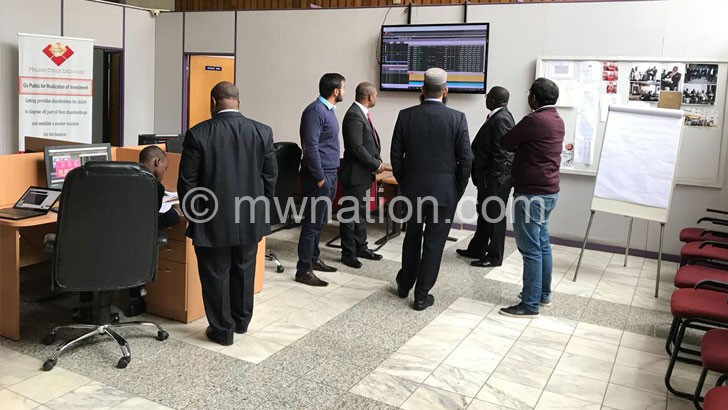Twenty-six Treasury notes with a nominal value of K787 billion listed on 16-counter Malawi Stock Exchange last year are yet to register any trading activity, Business News has established.
Market analysts have attributed the development to limited alternative investment instruments for investors on the market.
A latest report by the MSE shows that the 26 government securities issued on MSE on December 6 2021 along with the 23 Treasury notes with a total nominal value of K916.58 billion have not registered any trade.
In an interview yesterday, Bridgepath Capital Limited chief executive officer Emmanuel Chokani while indicating that it is too soon for any movement to happen, said supply of instruments and alternatives is a challenge on the market.
“Some of the investors probably buy and hold to maturity and, therefore, they would not be actively looking to trade the instruments they have,” he said.
The debt instruments are being traded on MSE
Stockbrokers Malawi Limited chief executive officer Noel Kadzakumanja said in an interview that the development could mean that the bondholders are happy holding on to the bonds.
MSE operations manager Kelline Kanyangala was yet to respond to a questionnaire, but earlier highlighted that non tradability of bonds is an issue that is common for most exchanges within the region.
She said: “One of the challenges we have observed is that investors hold on to their securities and thus do not usually trade.
“There is also lack of awareness on the issue of bonds which further contributes to the lack of trades.”
The listing of these bonds on the secondary market, according to the MSE, was meant to offer liquidity on the market through generation of interest that the bonds have attracted from the general public following the primary issuing of the bonds.
Speaking during the listing of the bonds on MSE on December 6 last year, Reserve Bank of Malawi Governor Wilson Banda said the securities will create opportunities for investors to buy and sell and liquidity for those that want to participate in the market.
Lately, Treasury has resorted to long-term borrowing, shifting away from short term borrowing, a development analysts have described as a positive move towards debt restructuring.
Nonetheless, there has been little or no trading on the government securities as investors hold on to their securities and thus do not usually trade.
MSE chief executive officer John Kamanga earlier indicated that MSE has engaged services of commercial banks and fund managers to reach out to many people and participate in the secondary trading.
“Instead of having only four brokers we have extended an olive branch by including dealers in the commercial banks and fund managers.
“Currently, all eight commercial banks and fund managers are now part and parcel of our agency which means we have increased brokers in terms of dealers,” he said.
The MSE debt platform was introduced in 2010, considering the possibility that some entities may not be willing to bring in shareholders in their companies.
A bond is a marketable government debt security with a fixed interest rate and maturity of between one and 10 years.
This is a debt instrument which an investor loans money to an entity and is issued to raise financing.
The post Treasury’s 26 bonds Yet to trade on MSE appeared first on The Nation Online.
 Moni Malawi
Moni Malawi 

